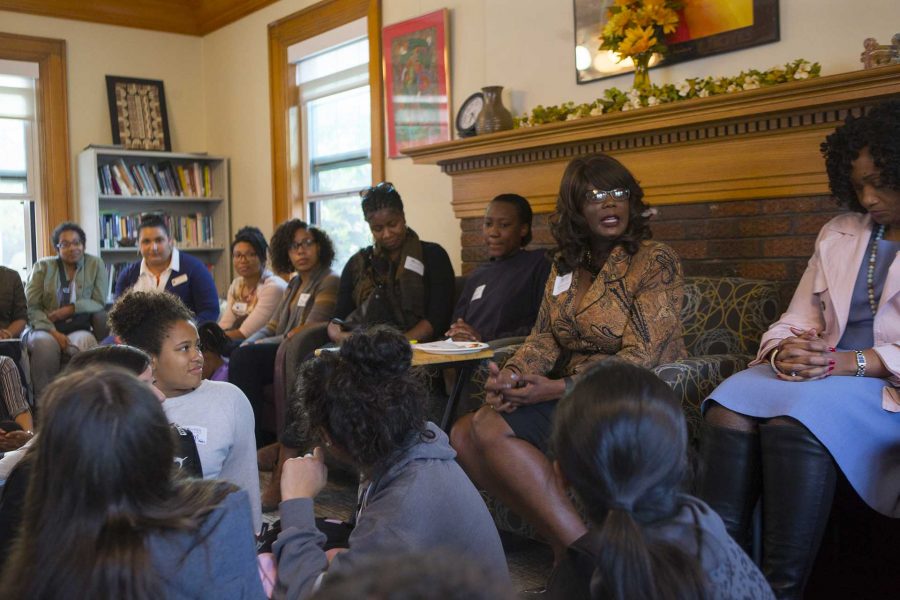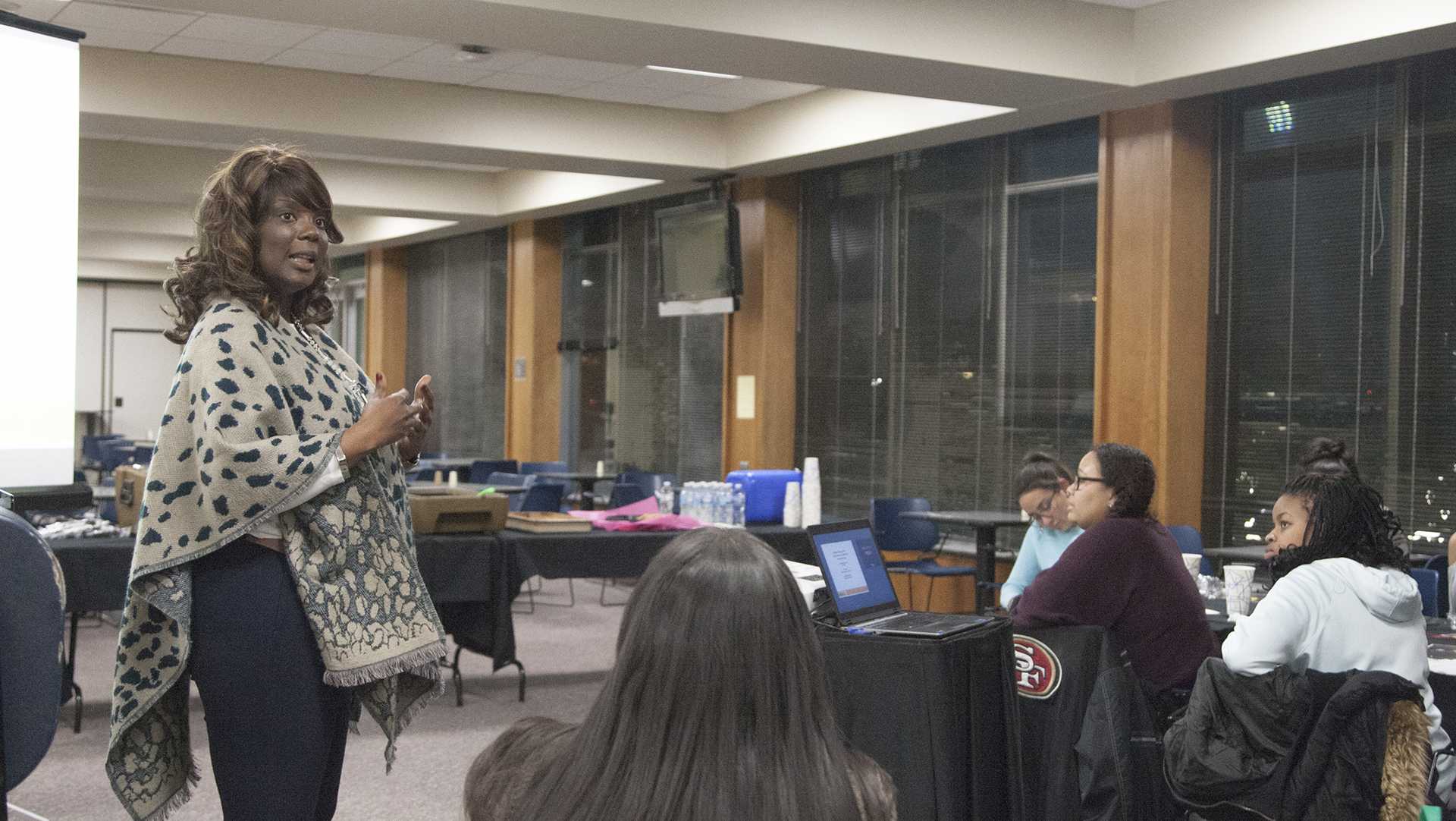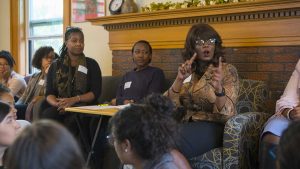Hegde: The impact of connecting women of color
The Womxn of Color Network brings potential connections and mentors for minority women throughout campus.
Vice President for Student Life Melissa Shivers speaks during the Womxn of Colour Welcome Mixer at the Women’s Resource and Action Center on Wednesday, Sept. 6, 2017. It was the inaugural event for the Womxn of Colour Network Series, and will feature a monthly program on a topic affecting women of color.
September 11, 2018
Sitting in the Old Brick on Sept. 5 for the second Womxn of Color Network Welcome Mixer, there was a sense of camaraderie as I received wide smiles by just glancing around the room. Women of color from all parts of the community — students, faculty, locals — had come together to simply celebrate that they were all there, in a safe space just for them.
Sitting in that space, I realized how I had never been in a similar setting before — even though there had been times in my life when I had wanted nothing more. The Womxn of Color Network provides a much needed gathering of minority women in the Iowa City area.
The network shows its welcoming nature right in its name; the “x” replacing the “e” in “women” is done to be inclusive of “gender nonconforming women” and emphasizes that “women are not a subcategory of men.”
Jessica Padilla, the program coordinator at the Women’s Resource & Action Center and founder of the Womxn of Color Network, noted her reason for started the program. “I really wanted to make sure that our women of color on campus felt like WRAC was a place for them as well,” Padilla said.
At the University of Iowa, a annual workforce report to the state Board of Regents shows that only 12.8 percent of the workforce at the university is made up of minorities. This also means that minority students don’t often get the chance to meet mentors on campus who look like them and can relate to their struggles.
College is a busy time for everyone on campus, and it is important that both minority students and minorities in the workforce feel like they have somewhere to voice themselves without feeling foreign or judged. It can be hard to accept yourself when it feels like you have to try to fit into your surroundings; the Womxn of Color Network not only highlights a woman’s background — which can be the most challenging part of oneself to embrace — but also helps women of color to share their stories with like-minded individuals.
According to research by DeLois Crawford of the Rochester Institute of Technology, because women of color live with numerous marginalities, it can be challenging for them to develop connections with female mentors, and this can lead to a sense of isolation.
That being said, the Womxn of Color Network is unique from other minority groups on the UI campus in its inclusion of faculty and staff. Padilla wanted to promote “an opportunity for empowerment, mentorship” through the series and let women of color have a space where they can be “unapologetically themselves.” Self-acceptance has no age limit, and that the network brings all these women together further displays the importance of the movement.
With enough funds, Padilla said, she “would love to have an opportunity to do an institute or retreat” surrounding the network. The goal could soon be achievable; she was happy to report that during Phil Week, the programming series was selected for the GOLDrush Campaign, the UI’s crowd-funding website.
To expand the network means to expand the chances of a woman of color finding a mentor or more importantly, a friend. Just at the mixer, I felt a sense of happiness for all the women in the room, chatting like old friends with people I had never met.





